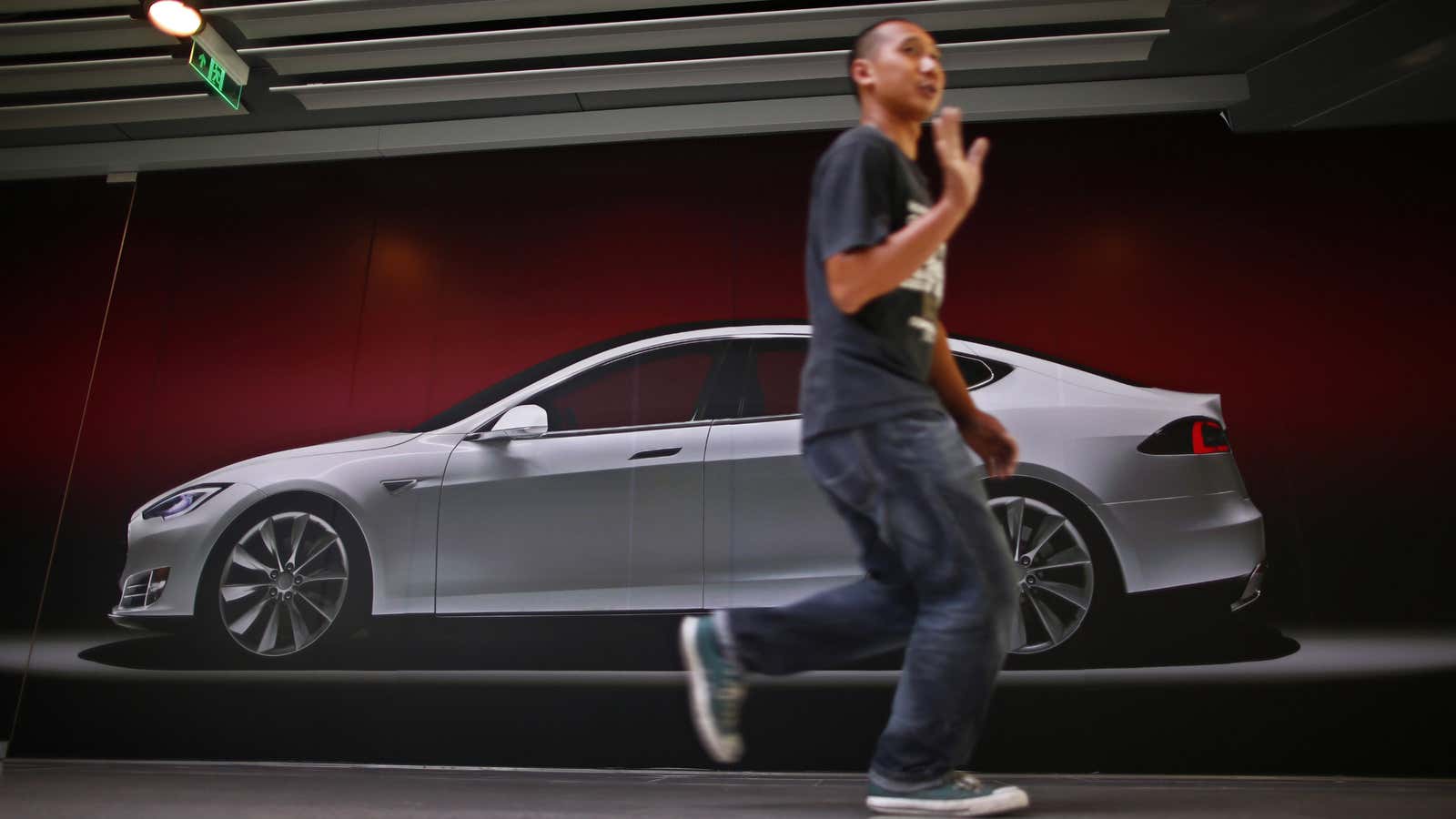General Motors is in a race for the electric-car future with showy Tesla. Yesterday the world’s second-largest carmaker announced that it plans to build an electric car to rival the 200-mile (320 km) range of Tesla’s Model S and sell it for $30,000, less than half Tesla’s price. But what’s interesting is that Tesla’s Elon Musk, the pioneer of both space and earthly travel, is relying on old technology while the incumbent, GM, is pushing the boundaries of battery science.
For all its innovation, the Model S uses ordinary commodity batteries produced by Panasonic. On the outside, they resemble the regular cylindrical batteries that you buy in the store, only a little larger. The chemical composition is nickel-cobalt-aluminum, which costs less than many rival chemistries but is ordinarily rejected by carmakers because it easily catches fire. Musk’s team has overcome the safety issue by building a control system that manages the batteries.
GM has gone the other way. It does not dismiss Musk’s success with off-the-shelf batteries. But it is attempting to optimize a lithium-ion battery composition that promises to beat everything else currently out there. Containing nickel, cobalt and manganese (NMC), it was invented at the US-backed Argonne National Laboratory. Scientists think that NMC is potentially more powerful and cheaper than any other lithium-ion chemistry, but it has flaws of physics that no one has yet managed to fix. GM hopes that either NMC or another composition will let it build a long-range car cheaply.
GM already sells two electric cars, the Chevy Volt and the Chevy Spark EV, for around $35,000 and $27,500, and in the US that’s before government tax credits that apply a $7,500 discount to electric cars. But despite costing $71,000 before the tax incentive, Tesla’s Model S has sold more models than the Volt this year. The Model S is unabashedly marketed as a sporty luxury car, but it is also the only all-electric car with a 200-mile range; others clock in at 100 miles or less.
Both manufacturers are planning to attack each others’ markets. GM, conceding that it may have something to learn from Musk, is trotting out an electrified Cadillac and may release $100,000 vehicles that challenge Tesla directly. Musk, for his part, says he plans in the next few years to release a 200-mile Tesla that would cost around $35,000.
GM’s Doug Parks wishes Tesla the best of luck. But he is sticking to the bench. “The game is afoot,” Parks told reporters at GM’s expanded new battery lab on Sept. 17. “This is a long race.”
